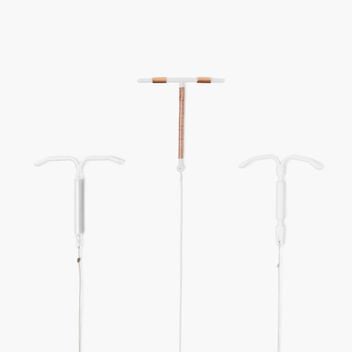What are the side effects of the birth control pill?
The birth control pill may cause side effects for some people, but they usually go away after a few months. And some birth control pill side effects are positive.
What birth control side effects should I expect while taking the pill?
The hormones in birth control pills may cause side effects in some people. But this doesn’t happen to everyone — many people use the pill with no problems.
After starting the pill, some people may have:
-
Headaches
-
Nausea
-
Sore breasts
-
Changes in your periods (early, late, or stopping altogether while on the pill)
-
Spotting (bleeding between periods or brown discharge)
The good news is that these side effects usually go away in 2-3 months. So if you just started the pill and you have side effects that bother you, try to stick it out and give your body a chance to adjust to the hormones.
Birth control shouldn’t make you feel sick or uncomfortable. If you still don’t like the way the pill makes you feel after a few months, talk with your nurse or doctor. They may suggest another brand of pill or a different birth control method. Some people try a few different types of pills or birth control methods before finding the right one for them.
And remember: if you stop taking the pill and don’t use another birth control method, you’ll be at risk for pregnancy right away.
The birth control pill has been around for decades, and millions of people have used it safely. Birth control pill side effects aren’t dangerous (though there are some possible risks with taking the pill, like with any medicine). You can always call a nurse or doctor, like the staff at your local Planned Parenthood health center, if you have any concerns while using the pill. And you can keep track of any potential side effects with our birth control app.
Are there good birth control pill side effects?
Side effects aren’t always a bad thing — many people use the pill because some of the side effects can be really helpful. For example, the hormones in the pill can help with painful, heavy, or irregular periods. The pill may ease cramps and PMS, and it will usually make your period lighter and more regular. You can even use the combination pill to safely skip your period.
The changes in your periods while on the pill can sometimes make people worry about being pregnant. But the chance of pregnancy is very low as long as you’re taking your pill every day. If you’re worried, you can always take a pregnancy test to be sure.
Some types of birth control pills can also help prevent acne, iron deficiency (anemia), bone thinning, cysts in your breasts and ovaries, and certain cancers.
What are the side effects of stopping the birth control pill?
Any time there’s a change in your hormones — like when you go on or off hormonal birth control such as the pill — there’s a chance of temporary side effects. But they usually go away after a few months.
When you go off the pill, your body will eventually return to the way it was before you went on it.
So if the pill made your periods lighter, your periods will probably get heavier once you stop using it. It can also take a few months for your period to go back to the cycle you had before you started taking the pill. And if the pill helped clear up your skin, your acne may come back after you go off the pill. But everyone’s body is different, and our bodies also change over time. For example: you’re less likely to have acne after puberty, so if you started taking the pill in your teens but go off it in your 20s, you may have naturally grown out of your acne by then.
Another important thing to note: you can get pregnant right away once you stop taking the pill (even if your periods aren’t regular). So if you’re going off the pill but you don’t want to get pregnant, make sure to use another birth control method.
There’s no way to know exactly how your body will react to going off the pill, but any negative side effects that you may have will go away within a few months as your body gets used to being off the hormones.
If you’re really worried about the side effects of going off the pill, talk with your nurse or doctor. They may be able to give you more specific information about what to expect based on your personal medical history.
 Abstinence
Abstinence
 Breastfeeding
Breastfeeding
 Cervical Cap
Cervical Cap
 Condom
Condom
 Diaphragm
Diaphragm
 FAM
FAM
 Female Condom
Female Condom
 Implant
Implant
 IUD
IUD
 The Patch
The Patch
 The Pill
The Pill
 The Ring
The Ring
 The Shot
The Shot
 Spermicide
Spermicide
 Sponge
Sponge
 Sterilization
Sterilization
 Vasectomy
Vasectomy
 Withdrawal
Withdrawal